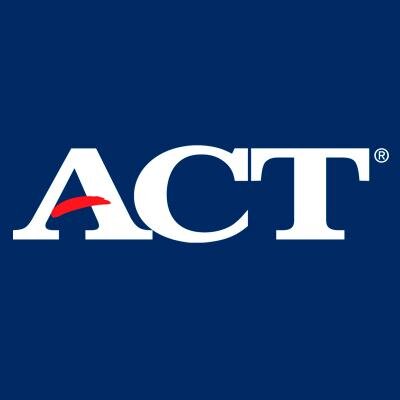Is Studying for the ACT Cheating?

ACT logo
Students who plan on attending college are almost guaranteed to take some form of a standardized test for colleges. Standardized tests allow colleges to rank each student’s readiness for post high school education.
Whether it be the ACT, SAT, or any other standardized test there are study books, tutors, and prep classes available. However, some students and parents may speculate that studying for a test intended to measure your level of preparedness for college may be cheating the system. Some may believe that by memorizing certain information for a college readiness test by studying, the test is no longer a viable measure of your raw knowledge.
Others believe that since studying using a tutor, book, or prep course is by no means banned from neither the board of the ACT or SAT, studying is simply a way to get a leg up on the competition.
A Junior at Arrowhead, Jack Cieslak, says, “I think that the ACT should be something that is taken without studying, because my understanding is that it is an exam to measure how much you know. I feel like studying with a book, tutor, or prep course isn’t your raw knowledge.”
According to wealthmanagement.com the average US ACT composite score is 21.1 out of a perfect score of 36. The average composite score for an Arrowhead student according to archive.jsonline.com is 25.1.
Wealthmanagement.com also said, “Based on their ACT scores, the test maker calculated how many 2011 high school graduates were ready to handle college-level work. The numbers aren’t good. Only 25 percent of students performed well enough in the ACT’s four core areas—English, reading, math and science—to be considered ready for college.”
According to usnews.com, about a 23 composite score deems a student ready for college.
According to collegeatlas.org, 30 percent of college freshmen drop out during their first year. NBC news says that just over half the students who attend college ACTUALLY graduate.
The consequences of attending college and discovering that it is not a good fit reaps the punishment of grand monetary debt.
According to collegedata.com, “According to the College Board, the average cost of tuition and fees for the 2016–2017 school year was $33,480 at private colleges, $9,650 for state residents at public colleges, and $24,930 for out-of-state residents attending public universities.”
The 30% of freshmen that drop out in their first year will suffer an entire year’s worth of tuition debt.
Additionally, according to education.seattlepi.com, “A student’s ACT scores are one clue college admission officers look at to predict whether a student will succeed in college, but research shows they make only a small difference. Researchers at the University of North Texas found that overall, high or low ACT scores accounted for only about 5.9 percent of the difference in GPA points between academically successful students and academically unsuccessful students in college.”
The ACT is an immense standardized test, and is the most widely accepted standardized test at colleges in the US today. However, there are questions as to whether the ACT truly determines one’s readiness for college.





